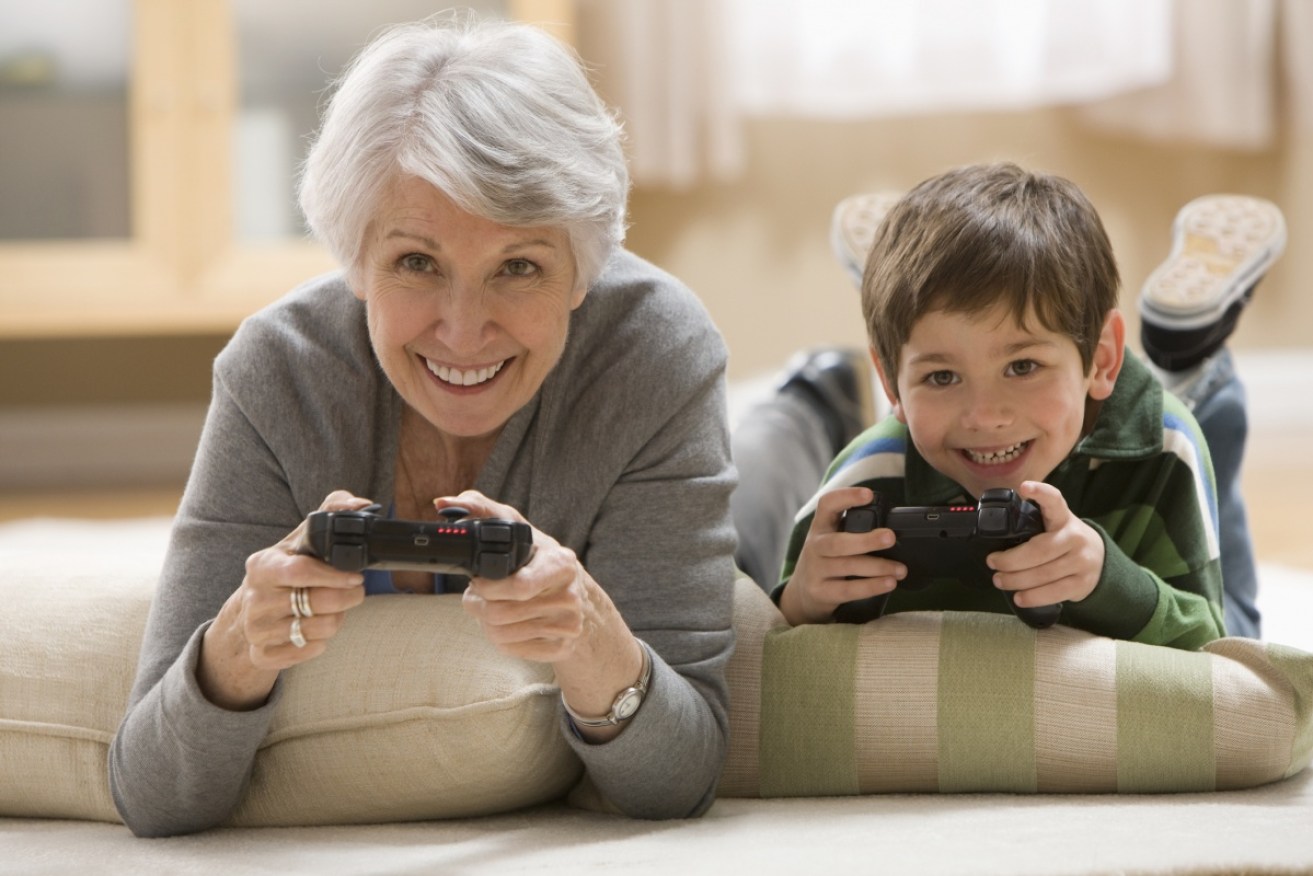Australians self-medicating against old age with video games


Most Australians believe video games can help our mental health and wellbeing. Photo: Getty
Australians are using the most unlikely medication to deal with health issues like stress and dementia – playing video games.
The new ‘Digital Australia‘ report by Bond University and the Interactive Games and Entertainment Association (IGEA) found that people are turning to video games for education and to keep their minds active.
The report surveyed 1234 households and 3135 individuals, with 84 per cent of respondents maintaining video games can improve thinking skills and reduce anxiety.
Ninety per cent believed video games could increase mental stimulation, while 80 per cent thought it could fight dementia and a further 59 per cent thought it helped them manage pain.
The average age of players was 34, and almost half (43 per cent) of those aged 65 and over said they played video games. Older Australians have made up the largest group of new players for the past six years.
Brett Wilkinson, a computer science lecturer at Flinders University, said digital games could help treat various conditions in an ageing Australian population.
The interactive narrative of games challenged the brain and could potentially improve function, Dr Wilkinson said.
“The player is actively engaged in the storytelling process, their decisions within the game shape the outcome,” he said.
“With other issues like dementia, research suggests that familiar tasks or activities assist with dealing with this type of condition – a game or game mechanic can be applied to place the user in a comfortable, recognisable space.”
As for improving mental health conditions, Dr Wilkinson said games could allow people an escape from triggering situations.
“We can remove the player from scenarios that may cause them to exhibit depression responses, this can provide short-term relief from the condition.
“Even simple games like Words With Friends or Scrabble on your mobile phone provide the perception that you are engaging and are ‘exercising’ your brain – which neuroscience suggests is an effective mechanism to help mitigate mental health-related conditions.”
However, he said not all games were effective.
Interactive games help people connect
One of the lead authors of the Digital Australia report, Jeff Brand, said the results showed motives for playing video games were shifting.
“The fun continues through interactive games, but the research shows that games increasingly serve other uses,” Dr Brand said.
“Australians are playing for social connectedness, whether that be with family or friends.
“They’re playing to reduce stress, to be challenged, to learn, to keep the mind active, or for physical and mental health benefits.”
Motives for playing video games changed depending on the person’s age.
“Young adults play to help pass time, have fun, and de-stress,” Dr Brand said. “Older Australians, while also playing for enjoyment and to pass time, report keeping the mind active as a top reason for playing.”
A third of adults had used games at work, and one in two parents said their children had used games at school, the report found.
Households with children were slightly more likely (97 per cent) to have video game devices than those without (93 per cent). Eight out of 10 households had multiple devices.
Playing to win
Respondents to the Digital Australia survey were clear that video games were helping them with issues they usually found difficult to manage.
“Virtual social games help me to learn social skills and teach my child about different personalities and how to respond to them, in a safe environment,” a 33-year-old woman told the survey.
“Online role playing group games help me to connect with people when I feel lonely.”
A 66-year-old woman said: “Video games help me pass the time and keep my brain working. The old ‘if you don’t use it you lose it’ saying comes to mind.”
A man, 79, agreed: “Games keep my brain active in my senior years, and hopefully delay dementia. They also provide some satisfaction when completed successfully and fill the time in my stay-at-home days.”








